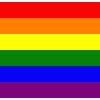My Reply to a Racist Letter I Received
I'm on several YahooGroups email lists. One of the lists is inactive except for one person who sends out jokes. But today, one of the notes was not a joke. It was a forwarded email from someone who had only bad things to say about people in the shelter in Houston. From the tone of the letter, he sounded like someone who went to the shelter with an (anti-black, anti-poor) attitude rather than with an open heart.
It concerns me that this kind of attitude is popping up here and there on the internet in emails and comments. Is this the 'real' attitude in this nation? I hope not! I hope the generosity that has been poured out recently is evidence of the true attitudes of most people.
This was my reply to the anti- letter:
Dear ... list,
I don't know any of you, but I feel that I need to respond in some way to the letter (Fw: thankless evacuee's) about the evacuees from New Orleans.
I do believe that we find what we expect, and we will be met in many situations by what matches our own attitudes. I don't know if the person who wrote that letter was the one whose name was on it. It doesn't matter.
What matters is to me in this situation is that the people who are in shelters now are there because they lost everything. They have lost their homes, their belongings, their pets, and in some cases, their family members. These people have endured a trauma far worse than I have ever experienced.
The author of the letter said he was not their slave. Maybe that was part of the problem. In a situation where the 'least' have lost even the small amount that they had, what they need is kindness and someone to listen and care. The physical things are certainly necessary, but they also need to know someone cares. When I'm in pain, I want comfort, not condescension.
I don't doubt that there are some people whose social skills are not the best. But, I do not believe the worst about an entire group of people based on the actions of a few. From what I have heard, there are far more people who are deeply grateful for the help they've been given than there are people like the writer of that letter described.
I don't see it as our place to demand that people who have just lost everything express their gratitude in pretty words and well-modulated tones. These are people who have been traumatized. I expect them to be angry and frustrated and sad.
I hope that letter was not from the man listed as the author. I hope that those who are going into the shelters to help are doing so with an open heart, seeing in the evacuees their own mothers and fathers, brothers and sisters, children, grandparents, relatives of all sorts, friends, and neighbors.
If we can look past our preconceived attitudes to the hurt and the humanity, maybe the experiences we have in the shelters will be different..
Deborah
|
It concerns me that this kind of attitude is popping up here and there on the internet in emails and comments. Is this the 'real' attitude in this nation? I hope not! I hope the generosity that has been poured out recently is evidence of the true attitudes of most people.
This was my reply to the anti- letter:
Dear ... list,
I don't know any of you, but I feel that I need to respond in some way to the letter (Fw: thankless evacuee's) about the evacuees from New Orleans.
I do believe that we find what we expect, and we will be met in many situations by what matches our own attitudes. I don't know if the person who wrote that letter was the one whose name was on it. It doesn't matter.
What matters is to me in this situation is that the people who are in shelters now are there because they lost everything. They have lost their homes, their belongings, their pets, and in some cases, their family members. These people have endured a trauma far worse than I have ever experienced.
The author of the letter said he was not their slave. Maybe that was part of the problem. In a situation where the 'least' have lost even the small amount that they had, what they need is kindness and someone to listen and care. The physical things are certainly necessary, but they also need to know someone cares. When I'm in pain, I want comfort, not condescension.
I don't doubt that there are some people whose social skills are not the best. But, I do not believe the worst about an entire group of people based on the actions of a few. From what I have heard, there are far more people who are deeply grateful for the help they've been given than there are people like the writer of that letter described.
I don't see it as our place to demand that people who have just lost everything express their gratitude in pretty words and well-modulated tones. These are people who have been traumatized. I expect them to be angry and frustrated and sad.
I hope that letter was not from the man listed as the author. I hope that those who are going into the shelters to help are doing so with an open heart, seeing in the evacuees their own mothers and fathers, brothers and sisters, children, grandparents, relatives of all sorts, friends, and neighbors.
If we can look past our preconceived attitudes to the hurt and the humanity, maybe the experiences we have in the shelters will be different..
Deborah






